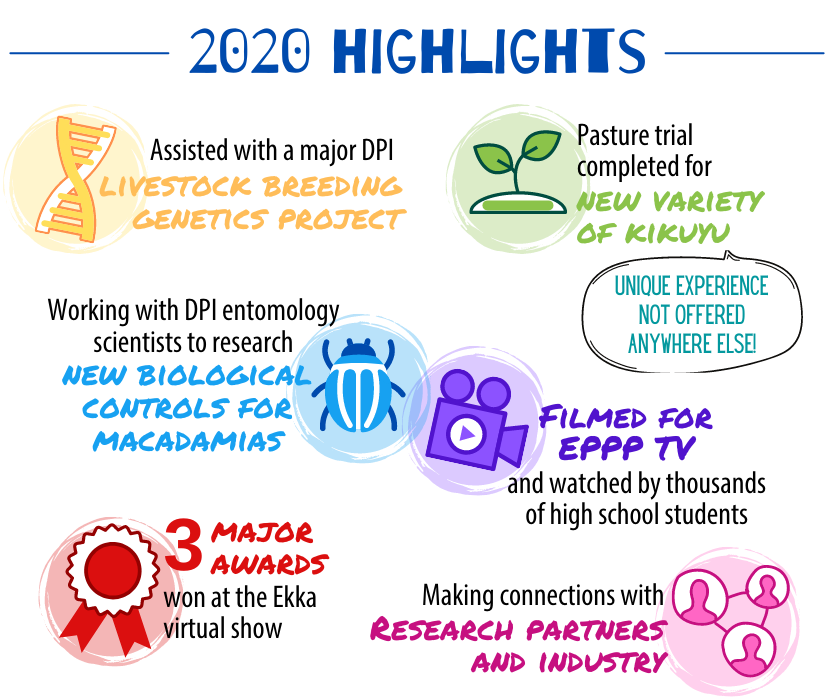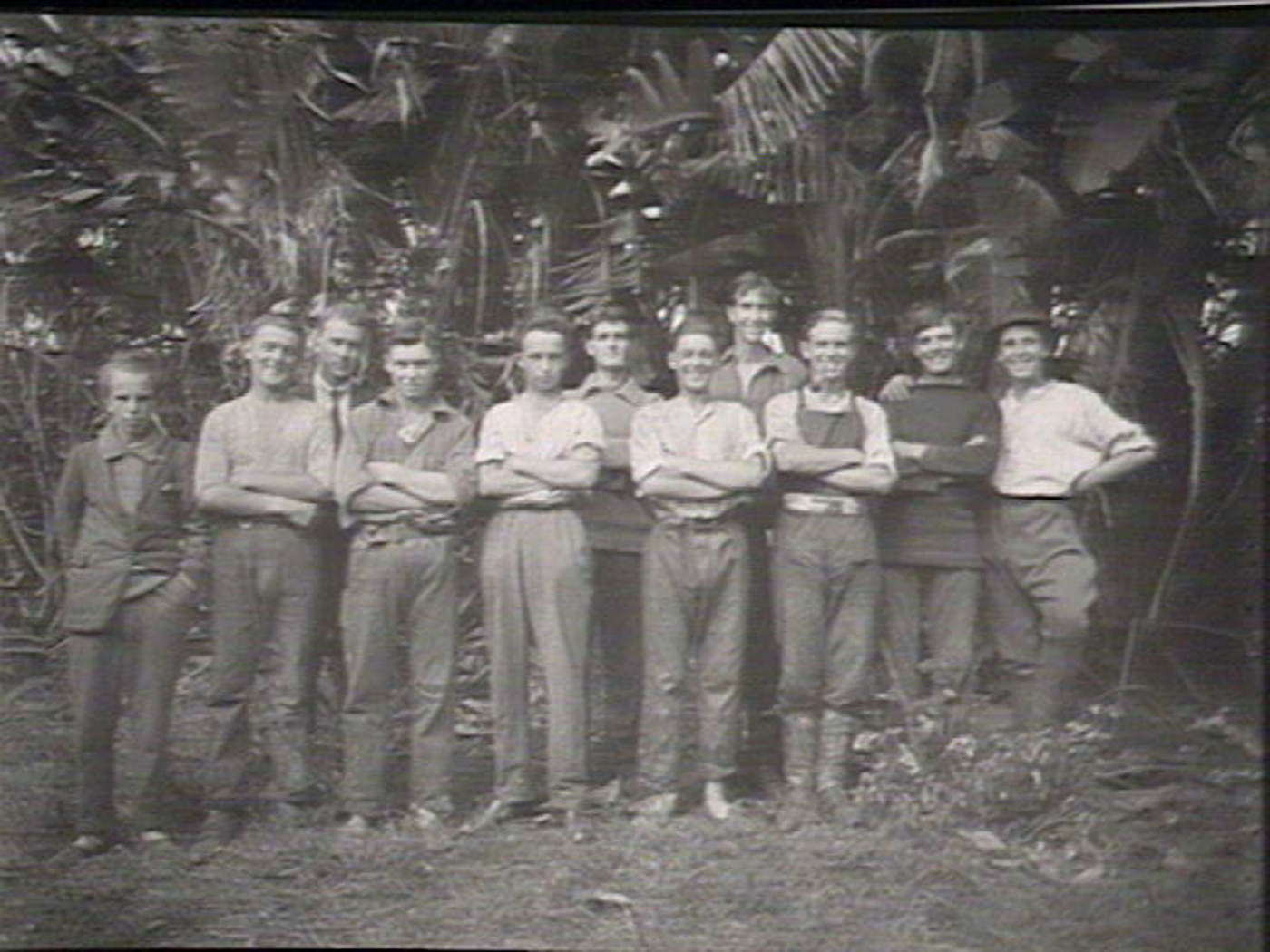
Next generation farmers getting hands on experience at DPI
School based trainees learning the practical skills they need for a career in agriculture
Opening up opportunities for young people to get their foot in the door for a career in agriculture is key to making sure the industry continues to grow and strengthen. School based traineeships are proving to be an effective way to demonstrate to students the various career pathways available in the agriculture industry, giving them a range of practical hands-on experience they would not get anywhere else, and helping to close the gap in the ageing workforce and overcome issues surrounding succession planning in the industry. By utlising our diverse sites, DPI is working to inspire, educate and develop the next generation of farmers, researchers and scientists.
Getting a foot in the door
 DPI's Primary Industries Institute at Wollongbar on the NSW far north coast, has taken on a cohort of eight school students as part of a schools based trainee program run with the NSW Department of Education. The trainees participate in practical work at the Wollongbar and Alstonville Institutes one day a week to help them build their practical skills alongside their studies in the classroom. The students engage in the daily operations of the farm and undertake various on-site training including:
DPI's Primary Industries Institute at Wollongbar on the NSW far north coast, has taken on a cohort of eight school students as part of a schools based trainee program run with the NSW Department of Education. The trainees participate in practical work at the Wollongbar and Alstonville Institutes one day a week to help them build their practical skills alongside their studies in the classroom. The students engage in the daily operations of the farm and undertake various on-site training including:
- Side by Side training
- Chemcert training
- Chainsaw training
- Tractor, bobcat and forklift operation (where age appropriate)
- First aid training
- Safe Work Instruction and Method Statements
Students also undertake training for their specific traineeship focus area in either commercial livestock or commercial horticulture, while completing their Primary Industries VET at school or TAFE, and end the program with a Certificate II in Agriculture.
Take a listen to this segment of EPPP TV featuring two of our school based trainees as they talk about their experience in the program at DPI's Primary Industries Institute in Wollongbar.
Visit the Department of Education’s Educational Pathways Pilot Program website to watch the whole episode.
Wollongbar also has two full time trainees who completed the school based traineeship in previous years and are now employed by the Department, along with two Aboriginal Elsa Dixon trainees, and has hosted over 20 short term work experience students. The school based traineeship program is currently a pilot program with the goal to roll out across other DPI research stations in the future.
Hitting the ground running
DPI trainees get to gain incredible experience across multiple focus areas including soil research, entomology, livestock genetics research, cropping and pasture projects and more, on top of their farm work and soil and water analytics. DPI's trainees have made significant contributions to the Department and have achieved a great deal in a short time. Here are just some of the highlights of 2020:

The school based traineeships are just one part of an overall DPI initiative focusing on Agri-skills development and pathways called "The Launch Paddock".
A long history in agriculture education
The Wollongbar Primary Industries Institute started out in 1894 as only the second Government Agricultural College and Experimental Farm to be founded in NSW. With a growing demand for rural education, the first students were enrolled in March 1902.
 From 1911, Dreadnought Boys began to arrive. These young boys came to Australia from Britain under the Dreadnought Boys scheme and were trained in agriculture at NSW government farms at Yanco, Cowra, Arrawatta, Glen Innes, Grafton and Wollongbar for three to six months before moving into the local workforce. The scheme played a large role in the growth of the agriculture industry in NSW with around 7,500 boys going through the program before it ended in 1929.
From 1911, Dreadnought Boys began to arrive. These young boys came to Australia from Britain under the Dreadnought Boys scheme and were trained in agriculture at NSW government farms at Yanco, Cowra, Arrawatta, Glen Innes, Grafton and Wollongbar for three to six months before moving into the local workforce. The scheme played a large role in the growth of the agriculture industry in NSW with around 7,500 boys going through the program before it ended in 1929.
Since then, Wollongbar along with many other DPI sites have continually taken part in programs to educate the next generation of farmers. Today, DPI's Tocal College is a dedicated education site that provides training for school leavers and other people who are interested in a broad range of agricultural careers and is one of the most highly regarded agricultural training centres in the country.

